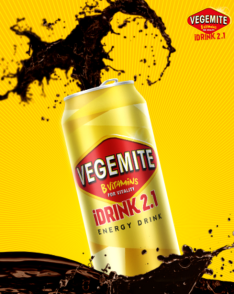Why brands love April Fools pranks
 On April 1 David Waller looks at the plethora of April Fools Day pranks and asks do they work and what do they achieve?
On April 1 David Waller looks at the plethora of April Fools Day pranks and asks do they work and what do they achieve?
Are you sceptical about advertising messages? Well, today there is even more reason to question the ads that you see.
In the last few years April Fools’ Day has become a day that businesses have been releasing hoax advertising – so watch out!
Throughout the year there are particular times when advertisers will try to promote their products/services, including dates like Christmas, Easter, St Valentine’s Day, Mothers’/Fathers’ Day and during sales around the end of year/financial year; plus events such as the Olympics, Grand Finals (eg Superbowl in the US), the Oscars, and the finale of popular television series.
Using these dates or events are a form of topical advertising, and can show the audience that the brand is current and can relate to the what is happening in the world.
However, in recent years a growing number of businesses have been using April Fools’ Day to break the usual type of advertising to run humorous, hoax ad for that day.
April Fools’ Day News Stories
Over the years the media have presented many prank news stories on the 1st April..
One early example was in 1957 when the BBC news show Panorama ran a story on spaghetti farming in Switzerland.
The BBC has regularly continued with several stories, including the introduction of the new “smellovision” technology, the discovery of a colony of flying penguins, and replacing the Big Ben clock with a digital one.
Even the ABC has hoaxed its viewers, for example, last year Michael Rowland and Virginia Trioli from ABC News Breakfast announced that they were resigning with the poor coffee being a deciding factor.
While at the same time ABC Rural ran a story on an experimental wombat dairy north of Melbourne.
One of the best known Australian examples was in 1978 when Dick Smith towed an iceberg into Sydney Harbour to promote a scheme to bring icebergs from Antarctica to provide fresh water and also cut up and sell as ice cubes.
Advertising Examples
Taking advantage of the time for fun and pranks, advertisers have run advertisements, online announcements and news stories to promote its brand and get attention.
Some early examples are:
• 1983 BMW claimed that it was introducing a car with a sun roof that could be kept open when it rained as it had air jets that would deflect the rain.
• 1995 Polo Mints claimed that due to European Economic Community regulations they would no longer make mints with holes in the middle.
• 1996 Virgin Cola announcing new can technology which turned blue when the contents was out of date. By coincidence, Pepsi had a can that was blue.
• 1996 Taco Bell had bought the Liberty Bell in Philadelphia, and was renaming it the Taco Liberty Bell.
• 1998 Burger King announced a “Left-Handed Whopper”.
Other companies have introduced left-handed products on 1stDunlop golf balls, and IKEA Allen Key.
More recently this type of advertising has become more common, and the industry magazine Adweek has been recognising the Best of the Brand Hoaxes in 2012 , 2013, and 2014.
 These have included:
These have included:
• Vegemite’s energy drink iDrink 2.1,
• Domino’s new ‘snackaging’ which was a pizza box that can be eaten,
• Tropicana ‘All Pulp’ drink,
• Campbell’s Spaghetti Squares.
Do They Work?
The basic answer is – who cares? It is fun! The objective is not meant to sell the product, especially if the product is not real. However, the advertisers are using the good feeling of a fun day to associate with their brand.
Further, these types of advertisements can stand out from the usual advertising, thereby getting attention – a major objective of advertising – and as the industry recognises the creative advertisements on April Fools’ Day, this can enhance the image of the brand and the agency behind the ad.
So while you are looking at the various media today, watch out for the specially created advertisements. While it is good to be sceptical of some advertiser’s claims, you don’t want to be fooled.
- David Waller is currently acting head of the marketing discipline group at the University of Technology, Sydney




Who cares it’s fun … I’d for sure buy the Vegemite caffine booster
User ID not verified.
The John West tunacles (tuna icey pole) was probably my favourite this year
User ID not verified.
Agreed. It’s fun and it’s tradition!
Keep it up brands, April Fools pranks reminds your audience that you don’t take yourselves too seriously.
User ID not verified.